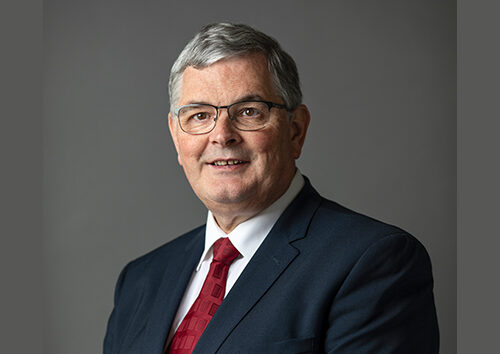25 August 2012, Rogaška Slatina, Slovenia [John Surridge, tedNEWS] In contrast to the busyness of the discussion groups, dramatic performers and assorted platform party members who occupied the stage area for most of the morning, during the sermon time Pastor Wintley Phipps stood on his own.
It takes an unusual talent to fill a stage, particularly as large as the one at the EPC in Rogaska, but Pastor Phipps did. The incredible voice helped of course. His performance of “I believe” was outstanding: technically, musically and dramatically, but mainly because he really meant what he was saying. At the conclusion of his song there was not the slightest doubt that Wintley Phipps did, indeed, believe.
“The whole world needs to experience God’s love through his people,” Pastor Phipps began. “The Lord has put before me a message, that God will help us to clear out any rubbish from our lives and anything else that is preventing others from experiencing the Love of God through us.”
This was the theme of Pastor Phipp’s message, and it was delivered gently, at least at first. “The message I have to give may not apply in this cultural setting,” he said. But even at this stage his congregation had a suspicion that it would.
Retelling the story of the prodigal son in his own words Pastor Phipps spoke of how the younger son had been born to wealth and privilege; how he must have felt shackled by the expectations and rules of his family. How he eventually grew weary of father’s advice, and how he resented him meddling in his own, personal, affairs.”
“What is it about hard-headed children,” Pastor Phipps asked, “who think that the longer you live the less you know about life?”
“Get the accountants together,” said the younger son. “Have the estate appraised. Sell the land and give me my share of the cash. Let me live my live as I want to.”
“By this stage the father knew that his son was out of control,” said Pastor Phipps, “but because of his respect for his son’s independence he chose to allow him to go his own way.”
For a few moments Pastor Phipps expanded on the concept of “a far country”. “Wherever you go without the father on your mind, you are living in a far country,” he said. “Out of the control of the father the son’s life ran out of control.”
Briefly skipping through the years of “wild living” Pastor Phipps praised God that he himself was fortunate enough to have been able to give God his young, strong years, though he cautioned, “they don’t last long!”
“I have a theory about why we lose our eyesight,” he continued, somewhat at a tangent, “it’s so that as our eyes get dim, especially in our marriages, we still look good to each other!”
The eyes of the son were now sunken. He was destitute and his cheeks were hollow. He came to his senses and realised, “In my father’s house even the poor eat better than I do.” In that moment he gathered what was left of his self-respect and said, “I will arise, I have sinned, I am not worthy. Make me as one of your hired servants.”
 The father saw him in the distance, of course, a gaunt, haggard figure. But he ran and kissed him. The son who was dead is now alive. What was lost is now found. Rejoice and be merry.
The father saw him in the distance, of course, a gaunt, haggard figure. But he ran and kissed him. The son who was dead is now alive. What was lost is now found. Rejoice and be merry.
Pastor Phipps had a question for his listeners:
“Why did Jesus speak this powerful message in a parable?” he asked. “It’s because in the parable we have the gospel in miniature. It is told in such a way that even a child can understand it. Jesus used this parable to deal with a major impediment which was keeping the world from experiencing His love: the distortion and the misrepresentation of the character of His Father.”
“The most effective weapon of the devil throughout history,” said Pastor Phipps, “is the misrepresentation of the character of God. It is impossible for the world to love God if they don’t know His true character.”
Right from the start the devil has sought to portray God as one who is demanding and severe, tyrannical, cruel, mean-spirited. Even in the Garden of Eden his subversive message was, “I know God. He has serious defects of character… He cannot be believed.”
“This is at the heart of the Great Controversy,” said Pastor Phipps, “and the primary mission of Jesus was to mount a vigorous defence of the true character of His Father.”
“But,” said Pastor Phipps, “down through history too many who carry the banner of the cross have participated in the misrepresentation and distortion of the loving character of God.”
Christians? Yes. The Roman Catholic church, sure. The Protestant church as well.
Pastor Phipps then told of how he had been travelling in a car with Dr John Stott, one-time chaplain to the Queen. “When I get to heaven,” Dr Stott told him, “one of the things I want to ask God about is why the areas of the world where Evangelical Christianity has been the most successful, have also been the breeding ground for intolerance and racism.” Examples from Northern Ireland, South Africa, and the Bible belt of the USA, underlined the truth of this statement.
But Pastor Phipps was not finished. “If the truth be known,” he said, “God also has a quarrel with us.”
Seventh-day Adventists? Unfortunately, yes.
 “God has called us to live so that the world can experience His love through us,” said Pastor Phipps. “For years I have been quietly dismayed that we are just not making enough nice people. We bury too many mean people. We bury too many unkind people. We bury too many angry people. We bury too many ruthless people, and we bury too many unpleasant people… Friendliness is not a cultural thing,” he pleaded, “it is a way for the world to experience the love of God through us.”
“God has called us to live so that the world can experience His love through us,” said Pastor Phipps. “For years I have been quietly dismayed that we are just not making enough nice people. We bury too many mean people. We bury too many unkind people. We bury too many angry people. We bury too many ruthless people, and we bury too many unpleasant people… Friendliness is not a cultural thing,” he pleaded, “it is a way for the world to experience the love of God through us.”
The marquee was silent as Pastor Phipps continued..
“Misrepresentation can be seen, “not only in the pews, but also in the revolting and sickening way that we play politics in God’s church. I don’t have words strong enough to tell you how I detest the politicizing of God’s church. I find it disgusting, repulsive, that under the guise of protecting the church, we as leaders misrepresent the loving character of God.”
Using the words of actor Richard Harris in his poem “There Are Too Many Saviours On My Cross”, originally written in response to the violence in Northern Ireland, Pastor Phipps read, “You children, lying in cries on Derry streets, pushing your innocence into the full-flushed face of Christian guns, battling the blame on each other, Do not grow tongues in your dying dumb wounds speaking My name. I am not your prize in your death, you have exorcised Me in your game of politics.” [Editor’s note: a full version of this poem can be found at: www.sdanet.org/steve/best/Too_Many_Saviours]
Sadly Pastor Phipps told the story of how he had been called to the General Conference in 1995 and how, after travelling to Rio de Janeiro for a meeting, a church leader had cornered him in an elevator and said, “I am going to do everything in my power to get you out of your position.”
Pastor Phipps admitted that others had supported him. “In bathroom conversations friends told me that they would stand up for me … but their courage never left the toilet.”
He went on to speak of the backbiting and mean-spiritedness he had experienced from colleagues in ministry, but also of the comfort he had gained from a parable told by an old Jamaican pastor: “An army private on watch duty had fallen asleep when a general came by and found him sleeping. He shook him awake and the terrified private found himself staring directly into the face of the general! Don’t worry, said the general. Just be thankful it wasn’t the corporal!”
But humour did not diminish the force of what Pastor Phipps was saying. “I realised that I had given these small-minded psychopathic minions too much importance in my life.”
“The current rate of growth in TED is about two members per church per year,” said Pastor Phipps. “In the North American Division it’s not much better, perhaps three or four members per church per year. Australia is about the same. In the western world we are not winning or keeping our native born indigenous members, at least not in any significant numbers.”
 “We have to recognise that there are some things that we need to repent of. We have too narrowly defined what sin is to God. Sin is not just transgression of the law. Which commandment covers nasty comments and mean looks? We have focused too much on the Ten Commandments and not enough on the loving character of God that they reveal. The commandments were given to help us grow and reveal the loving character of God. Unfriendliness is a sin because it is destructive of relationships that God wants you to honour. Unless our characters become more like the character of God, the world will not experience the love of God through us. For every Bible study we give on doctrine we should give four or five on becoming more like Jesus.”
“We have to recognise that there are some things that we need to repent of. We have too narrowly defined what sin is to God. Sin is not just transgression of the law. Which commandment covers nasty comments and mean looks? We have focused too much on the Ten Commandments and not enough on the loving character of God that they reveal. The commandments were given to help us grow and reveal the loving character of God. Unfriendliness is a sin because it is destructive of relationships that God wants you to honour. Unless our characters become more like the character of God, the world will not experience the love of God through us. For every Bible study we give on doctrine we should give four or five on becoming more like Jesus.”
Appropriately Pastor Phipps concluded his sermon with an altar call. “I want you to commit yourself to growing every day so that you more fully develop, resemble, and reveal the character of God – in your own lives and in the lives of your members.”
Tens, then hundreds, went forward as the whole assembly made a joint commitment: to truly experience God’s love in their lives and reflect that love more fully day by day. [tedNEWS]
tedNEWS Staff: Miroslav Pujic, director; Deana Stojkovic, editor; Dragana Selakovic-Duval; Frederic Duval & Tor Tjeransen, photographers
119 St Peter’s Street, St Albans, Herts, AL1 3EY, England
E-mail: [email protected]
Website: www.ted-adventist.org
tedNEWS is an information bulletin issued by the communication department of the Seventh-day Adventist Church in the Trans-European Division.
You are free to re-print any portion of the bulletin without need for special permission. However, we kindly request that you identify tedNEWS whenever you publish these materials.


